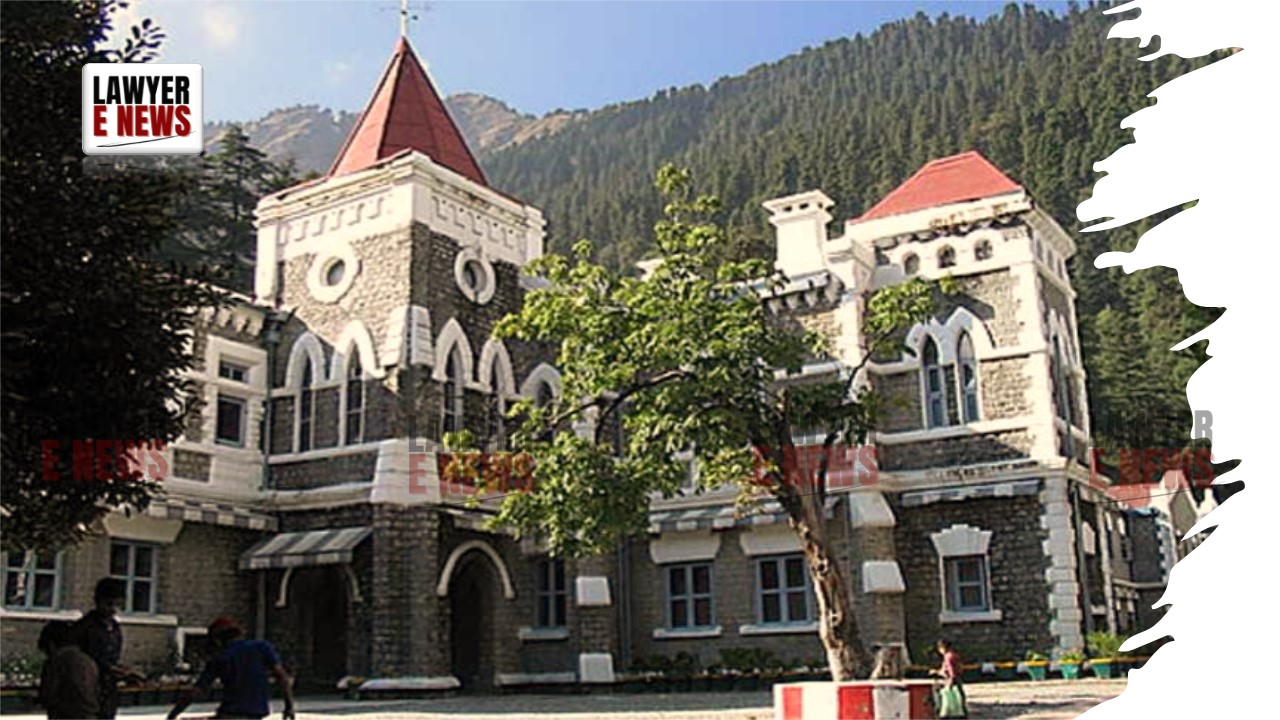-
by Admin
15 February 2026 5:35 AM



“Continuous Separation and Lack of Cohabitation Constitutes Cruelty” – Uttarakhand High Court
The Uttarakhand High Court has allowed the appeal for divorce filed by Chhavi Aggarwal, reversing the Family Court’s decision that dismissed her petition. The bench, comprising Hon’ble Chief Justice Ms. Ritu Bahri and Hon’ble Mr. Justice Rakesh Thapliyal, emphasized that prolonged separation and absence of marital cohabitation constitute cruelty under Section 13(1)(ia) of the Hindu Marriage Act, 1955. This landmark judgment underscores the judiciary’s acknowledgment of irretrievable breakdown of marriage as a valid ground for divorce.
The appellant, Chhavi Aggarwal, married Vilakshan on May 31, 2015. The marriage soon soured due to alleged dowry demands and physical abuse from the respondent and his family. Chhavi contended that she faced persistent harassment, culminating in her expulsion from the matrimonial home in December 2015. Despite several attempts at reconciliation, the couple has lived separately since 2017. Chhavi filed for divorce under Section 13 of the Hindu Marriage Act, 1955, citing cruelty and irretrievable breakdown of the marriage.
The High Court placed significant emphasis on the prolonged separation of the parties, which spanned over seven years. The court remarked, “Continuous separation and lack of cohabitation for seven years indicate an emotionally dead marriage, constituting cruelty under Section 13(1)(ia) of the Hindu Marriage Act.” The bench referred to Supreme Court precedents, including Rakesh Raman v. Kavita and Munish Kakkar v. Nidhi Kakkar, which highlight that long-term separation and lack of conjugal relations justify the dissolution of marriage.
The judgment extensively analyzed the principles of cruelty and irretrievable breakdown of marriage. It cited the Supreme Court’s stance that marriages without meaningful bonds, marked by prolonged separation, are grounds for granting divorce. The court stated, “The non-grant of divorce at this stage would amount to cruelty, as both parties have lived separately for an extended period and there is no possibility of reconciliation.”
Notably, the appellant expressed no interest in permanent alimony, seeking only the dissolution of the marriage. The court observed that both parties are financially independent, eliminating the need for alimony provisions. “The appellant-wife stated no interest in permanent alimony, underscoring her desire to move on from an unworkable marital relationship,” the judgment noted.
Justice Ritu Bahri remarked, “Continuous separation and lack of cohabitation for seven years indicate an emotionally dead marriage, constituting cruelty under Section 13(1)(ia) of the Hindu Marriage Act.” She further emphasized, “The non-grant of divorce to both the parties at this stage would amount to cruelty.”
The Uttarakhand High Court’s decision to dissolve the marriage highlights the judiciary’s progressive approach in recognizing irretrievable breakdown and prolonged separation as valid grounds for divorce. This judgment reaffirms the legal framework’s adaptability to evolving societal norms and underscores the importance of mental and emotional well-being in marital relationships. The dissolution of the marriage between Chhavi Aggarwal and Vilakshan is expected to serve as a precedent for similar cases, reinforcing the significance of addressing prolonged separation and marital discord in divorce proceedings.
Date of Decision: May 16, 2024
